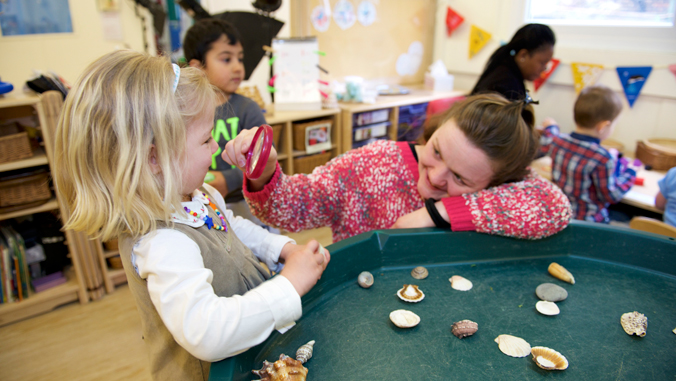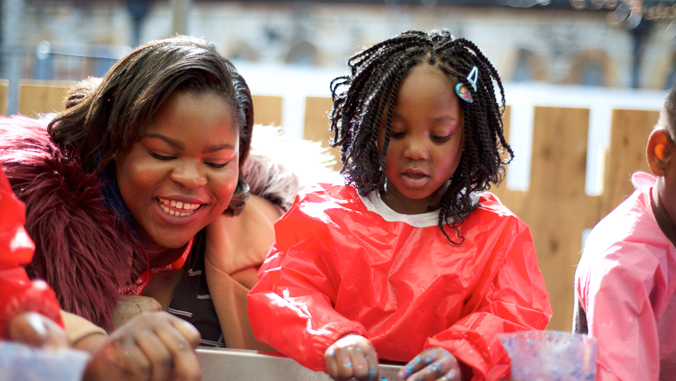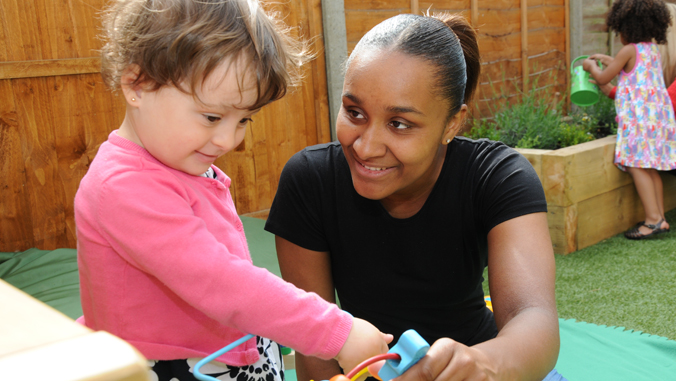For babies and young children, play is at the very heart of how they learn and develop. From practicing new sounds, to developing gross motor skills, play is fundamental in developing the basic skills that will support their literacy, numeracy and understanding of the world later on.
It also helps to build their self-confidence, giving them a sense of their own abilities and helping them feel good about themselves. Because play is fun, children often become very absorbed in what they’re doing. This helps with their ability to concentrate.
Play is a way children can express their feelings even before they have the words to say how they feel. In play children are in charge of what they do. Being in control in play helps them to learn to manage their feelings.
At the London Early Years Foundation, all 38 of our London nurseries have a child-centred approach that puts play at the heart of children’s learning. Here, we take a look at some of the key benefits of play and ways in which you can join in to further support your child’s development.
Creativity and problem solving
Giving children the freedom to play means giving them the space to make their own choices and allows for imagination, exploration, discovery and expression. It provides a natural way for them to piece together the world around them. It can be tempting to want to intervene and direct your children to a specific activity if they look lost, but by sitting back and letting them make up their own mind you’ll help them develop their creative thinking and problem solving abilities.
Social interaction
Playing with other children as well as adults helps children to develop an understanding both of themselves and of others. Learning and practicing things like taking turns, sharing and considering the feelings of their peers as they play supports emotional development and social skills. Encouraging your little one to spend time with other children will help prepare them to deal with compromise, conflict and teamwork as adults. You can support this by making regular play-dates with friends’ or relatives’ children, and joining a nursery or playgroup for even a couple of sessions per week can significantly improve your child’s social development.
Physical development
When children play they are continuously practising and developing their gross and fine motor skills, helping to build the physical skills they’ll need for life. Keeping your children active and limiting sitting down or ‘screen-time’ is a great way to make sure they practice integrating these large and fine muscle movements, which will later help with writing and also language.
Language and communication
Watching and listening to those around them is key to children’s linguistic development. Play involving storytelling, role play and describing (e.g. different textures) are the perfect platforms to teach and encourage language, as children are eager to copy what they are seeing and hearing.
At LEYF nurseries, we have created our own unique research-based curriculum that supports children’s natural curiosity and confidence, so they leave nursery with a life-long enthusiasm for learning. Find your closest LEYF setting here.




You must be logged in to post a comment.